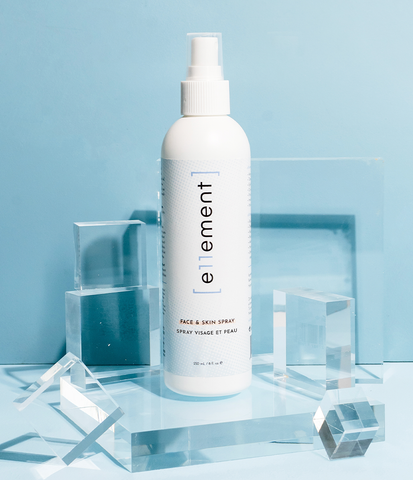In recent years, hypochlorous acid (HOCl) has emerged as a groundbreaking solution in skincare, especially for acne treatment. This naturally occurring compound, known for its potent antimicrobial properties, is now formulated into sprays, offering a myriad of benefits for the skin. In this first part of our comprehensive guide, we delve into the science behind hypochlorous acid, its role in acne treatment, and how it can be integrated into your skincare routine.
The Science Behind Hypochlorous Acid
Hypochlorous acid is a weak acid formed when chlorine dissolves in water. It is naturally produced by the white blood cells in our body as a defense mechanism against pathogens. Its powerful antimicrobial properties make it an effective agent in killing bacteria, viruses, and fungi, which is why it has garnered attention in the medical and skincare fields.

How Does Hypochlorous Acid Work?
Hypochlorous acid works by disrupting the cell walls of microorganisms, effectively neutralizing them. This action not only helps in reducing infections but also accelerates the healing process of the skin. In the context of acne, hypochlorous acid targets the bacteria (Propionibacterium acnes) responsible for breakouts, reducing inflammation and preventing new acne from forming.
Hypochlorous Acid Spray for Acne Treatment
Acne is often caused by a combination of factors including excess sebum production, clogged pores, bacteria, and inflammation. Hypochlorous acid spray addresses these issues in several ways:
Antibacterial Properties: It effectively kills acne-causing bacteria.
Anti-inflammatory Effects: It reduces redness and swelling associated with acne.
Promotes Healing: It accelerates the skin’s natural healing processes, reducing the risk of scarring.
Clinical Studies and Efficacy
Several clinical studies have demonstrated the efficacy of hypochlorous acid in treating acne. One study showed a significant reduction in acne lesions and inflammation in patients using hypochlorous acid spray compared to those using traditional treatments. The spray's gentle nature also makes it suitable for sensitive skin types, which often react adversely to harsher acne treatments.
Integrating Hypochlorous Acid Spray into Your Skincare Routine
Incorporating hypochlorous acid spray into your daily skincare routine can be straightforward. Here’s how:
Cleanse: Start with a gentle cleanser to remove dirt and oil.
Apply HOCl Spray: Spray evenly across the face, focusing on areas prone to acne.
Moisturize: Follow up with a non-comedogenic moisturizer.
Sunscreen: Apply sunscreen if used during the day to protect against UV damage.
Best Practices and Tips
To maximize the benefits of hypochlorous acid spray:
Consistency is Key: Use the spray twice daily for optimal results.
Patch Test: Perform a patch test before full application to ensure no adverse reactions.
Storage: Store the spray in a cool, dark place to maintain its efficacy.
Potential Side Effects
Hypochlorous acid is generally well-tolerated, but some users might experience mild irritation. If irritation persists, discontinue use and consult a dermatologist.
Conclusion
Hypochlorous acid spray represents a significant advancement in skincare, particularly for acne treatment. Its natural antimicrobial and anti-inflammatory properties, combined with its gentle nature, make it a versatile addition to any skincare regimen. In the next part, we will explore the detailed benefits of hypochlorous acid spray, its applications, and how it can revolutionize your skincare routine.























